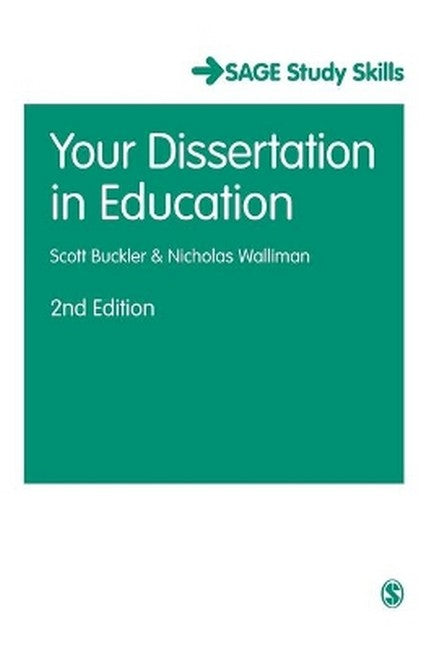Scott Buckler originally worked as primary teacher in London and Birmingham before his employment as a Senior Lecturer at the University of Worcester. He was originally appointed for his work in Special Educational Needs although he has diversified over the years to pursue how psychology can be applied to education. He has a particular interest in redefining the context of transpersonal education, which he believed, unites the various domains of human experience. Nicholas Walliman is a qualified architect and Senior Lecturer in the School of the Built Environment at Oxford Brookes University and a researcher associate in the Oxford Institute for Sustainable Development. After many years of practice in architecture in the UK and abroad, he returned to academic life to do his PhD. This experience raised his interest in research theory and methods, and he was subsequently asked by the university to write a distance learning course to guide postgraduate students embarking on research degrees. This course provided the raw material and incentive for writing this book. He has subsequently published several other books on research theory and methods for students and practitioners at various levels of expertise. He is currently conducting research with a team of architects and environmental scientists as part of the Oxford Brookes Institute for Sustainable Development. They are engaged in nationally and internationally funded projects on a range of aspects of building technology, such as energy saving building envelope design, mitigation of the effects of floods on buildings and advanced construction methods. He has published numerous research papers on aspects of architectural technology. He is also supervising several PhD and Masters students. Despite this emphasis on science and technology, his work with research students covers many other aspects of architecture and its relationship to society, such as vernacular architecture, the effects of westernisation, architectural education, conservation, administration and sustainable design.
Request Academic Copy
Please copy the ISBN for submitting review copy form
Description
Chapter 1: Introduction Chapter 2: What is a dissertation? Chapter 3: What is educational research? Chapter 4: What's all this about ethics? Chapter 5: What will it be about? Chapter 6: How do I get started? Chapter 7: How do I write a proposal? Chapter 8: How do I write an introduction? Chapter 9: Where do I get hold of all the necessary background information Chapter 10: How can I manage all the notes? Chapter 11: What about referencing? Chapter 12: How do I argue my point effectively? Chapter 13: How do I write a literature review? Chapter 14: Methodology and methods: what's the difference? Chapter 15: What is meant by mixing methodologies? Chapter 16: What sorts of data will I find and how much do I need? Chapter 17: Methods: How do I conduct effective interviews? Chapter 18: Methods: How do I structure effective questionnaires? Chapter 19: Methods: How do I undertake effective observations? Chapter 20: Methods: How do I conduct documentary analysis? Chapter 21: Why is reliability and validity so important? Chapter 22: How do I write a methodology chapter? Chapter 23: How do I analyse qualitative data? Chapter 24: How do I analyse quantitative data? Chapter 25: How do I combine different data sets? Chapter 26: How do I write a discussion chapter? Chapter 27: How can I work effectively with my supervisor? Chapter 28: What about working and planning my time? Chapter 29: How can I manage a long piece of writing? Chapter 30: Who else might be interested in my writing?
From constructing a question to presenting the findings, this welcome second edition should be the first read for students undertaking a dissertation in education. It makes complex methodological and procedural issues accessible, while fostering students' confidence and proficiency in undertaking an independent research project. -- Alan Thomson Aimed primarily at undergraduate students on teacher education degrees, this book deserves a much wider audience. Written in an engaging style, it provides clear explanations of complex ideas and is an excellent 'step-by-step' guide to planning and writing a dissertation. Highly recommended. -- Dr Nigel Skinner The great achievement of this book is the way in which it combines readability and rigour. Scott Buckler and Nicholas Wallman are to be congratulated on the very thorough yet accessible approach they have taken to the topic of dissertation writing, offering advice on each and every aspect of the process, clearly drawing on a wide range of experience and referring to some of the latest literature to support their advice. I am sure that many hard-pressed and potentially anxious colleagues undertaking writing of a sustained kind, perhaps for the first time, will gain enormous reassurance and support from this book. And they may even find some amusement, given the authors' sense of humour! -- Ian Menter

